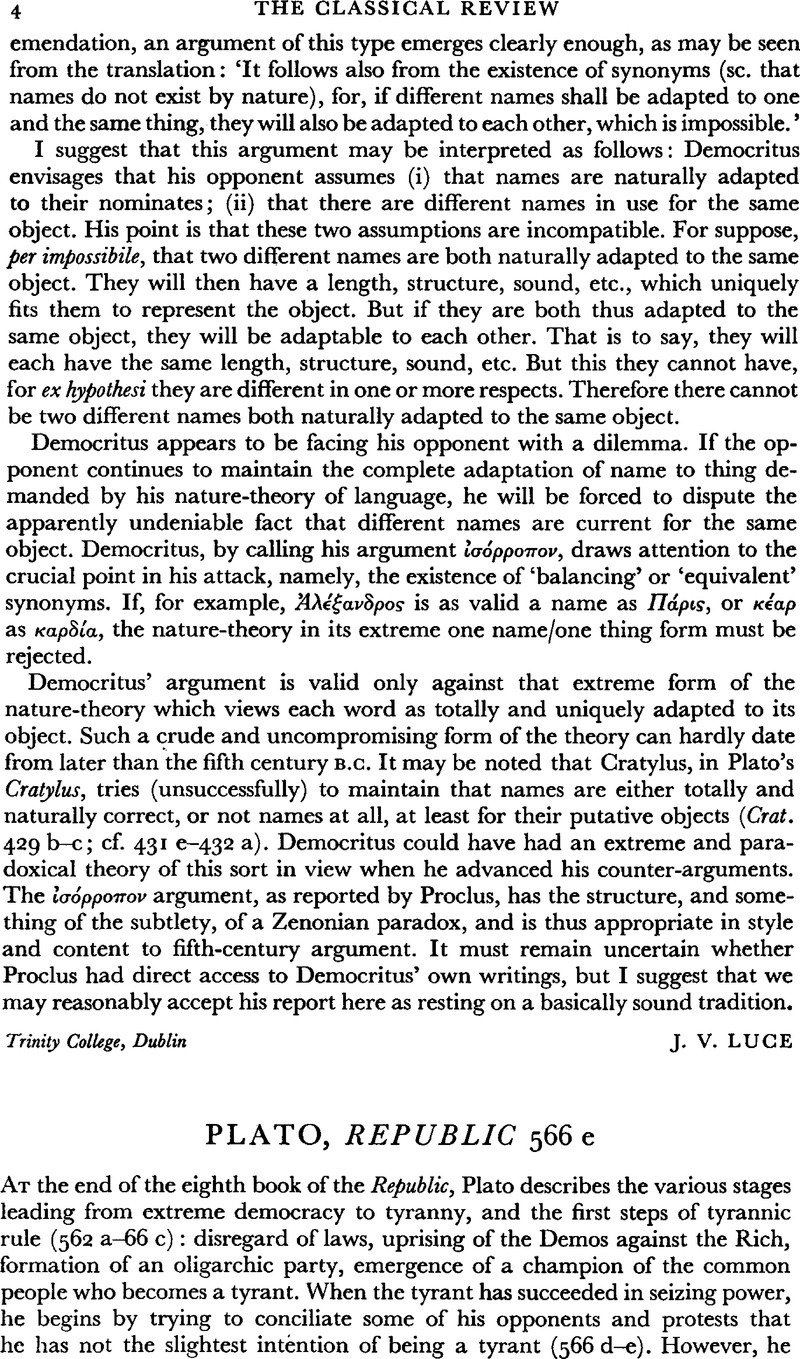No CrossRef data available.
Article contents
Plato, Republic 566 e
Published online by Cambridge University Press: 27 February 2009
Abstract

- Type
- Review Article
- Information
- Copyright
- Copyright © The Classical Association 1969
References
page 5 note 1 Translations of J. L. Davies and D. J. Vaughan (1881), of P. Shorey (Loeb, 1935), and of F. M. Cornford (1941); Shorey in a note in C.R. xix (1905), 438–9, remarked that ‘nothing has been said of foreign enemies’ and tried to prove that οἱ ἔξω ⋯χθρο⋯ actually means ‘his own (political) enemies abroad (who have gone to exile)’. Luccioni, J., in La Pensée politique de Platon, Paris, 1958, p. 82Google Scholar, paraphrases this passage: ‘Mais le moment arrive où il en a fini avec ses adversaires du dehors, c'est-à-dire ceux qui avaient été exilés ou qui avaient émigré spontanément et de l'étranger manœuvraient contre lui’, and adds in a note ‘c'est le sens de τοὺς ⋯χθρο⋯ς’.
page 6 note 1 I wish to thank Professor H. Lloyd-Jones, who made the suggestion that πρ⋯ς τοὺς ⋯χθρο⋯ς might be a gloss on πολ⋯μους τιν⋯ς when I pointed out to him how unsatisfactory I found the text as it now stands, and the difficulty of correcting ἔξω.




